Leaving no one behind

In a remarkable achievement, Bangladesh has fulfilled all three eligibility criteria for graduation from the UN's Least Developed Countries (LDC) list for the first time and is on track for being officially recognised as a developing country in 2024. Poverty rates in recent years have demonstrated an impressive steady improvement, falling by about 1.7 percentage points per year.
Despite the progress, extreme poverty, discrimination, and exclusion of marginalised people persist. The poverty rate in Bangladesh is 24.3 percent and the extreme poverty rate is 12.9 percent, according to Bangladesh Bureau of Statistics (BBS). Around 20 million extremely poor people mostly depend on manual labour, facing difficulties in finding regular employment and consequently in making ends meet. This situation traps the extremely poor in a vicious cycle of malnutrition.
In regard to gender inequality, women are more likely to live in extreme poverty than men and bear a disproportionate share of the effects. An estimated 11 percent of rural families are female-headed but around 28 percent of these households live in extreme poverty in terms of socioeconomic and nutritional status. Despite improvement in children's nutritional status over the past decade, stunting in children under five in the rural areas remains 20 percent higher than in the urban areas.
Besides, more than 70 percent of the population are vulnerable to climatic shocks such as floods, droughts, cyclones, salinity intrusion, and sea-level rise. Some areas of Bangladesh are facing specific climatic, economic and socio-political challenges. Water-logging and salinisation compromise the water and land management of the poor in south-west Bangladesh. The north-western parts of Bangladesh reel from droughts and river erosion, while the central northern region experiences seasonal flooding.
Then came the Covid-19 pandemic. Apart from causing fatalities and illnesses, it also dealt a heavy blow to the world economy, shrinking its growth, according to the IMF, by six percent compared to the previous forecast. Bangladesh was no exception to that. It lost about 0.2 to 0.4 percent of its GDP, estimates the Asian Development Bank. Extreme poverty rose by 60 percent with the advent of the pandemic, says a Brac study.
It is the fate of these people – the poor, the extremely poor and the disadvantaged – that the Palli Karma-Sahayak Foundation (PKSF) has been working to change since its inception in 1990. In its bid to generate employment for alleviating poverty in a sustainable manner and ensuring human dignity for all, this government-established apex development agency has been promoting sustained pathways out of extreme poverty since the early 2000s. Notable among the PKSF's projects to this end are the Financial Services for the Poorest (FSP), the Microfinance Support Intervention for FSVGD and Ultra-Poor Beneficiaries, the Programmed Initiatives for Monga Eradication (PRIME), and the UPP-Ujjibito.
Enriched with the learnings from these projects, PKSF launched the Pathways to Prosperity for Extremely Poor People (PPEPP) project in 2019 with support from the UK's Foreign, Commonwealth & Development Office (FCDO) and the European Union (EU). It aimed to permanently lift about one million extremely poor people out of poverty. Since then, PPEPP has made remarkable progress. In the participating households, the per capita income has risen to Tk 1,968 from Tk 1,162, the per capita expenditures to Tk 1,585 from Tk 1,197, and the average household savings to Tk 2,431 from Tk 2,275. Besides, the dietary diversity, food security, and resilience to shocks improved as well over the period.
Soon after the project's inception, the coronavirus pandemic sent the world economy in disarray. As a result, the extremely poor households participating in the PPEPP project faced more acute financial and food crises alongside already spiking health-related concerns. The project responded quickly and adopted remote working methods during the lockdowns. In addition to the regular activities, it floated an Emergency Assistance Program (EAP) for 30,700 extremely poor households, providing them with Tk 9,000. The EAP was very successful both in terms of efficient cash transfer and appropriate utilisation of the assistance. The recipients used this cash grant to purchase emergency supplies and defray medical expenses. Over half of them invested the cash in income-generating activities.
In October 2022, the project took up a new name, PPEPP-EU, when the EU became the sole financier, and the objective was slightly modified to enable extremely poor households to exit from extreme poverty and make significant progress towards prosperity. The specific objectives of the project now include:
1) To create enabling environment for 215,000 extremely poor households to increase income through establishing diversified Income Generating Activities and improve their asset base;
2) To enable those households to ensure their food security;
3) To ensure nutritional support to pregnant and lactating women, adolescent girls, children U-5 of the organised extremely poor households;
4) To ensure women of organised extremely poor households experience a significant change in their social status and ability to make decisions about their lives; and
5) Increase resilience of extremely poor households to climate change and other shocks.
The EU will provide about EUR 23 million to PKSF to implement the PPEPP-EU in 145 unions of 34 upazilas of 12 districts spread over the north-western river basin area, the north-eastern haor area, the south-western salinity-prone coastal area, and some areas inhabited by ethnic minorities. To address the multidimensional nature of poverty, the project is providing a carefully sequenced package of livelihoods, nutrition, and community mobilisation services, and is addressing three cross-cutting issues – disaster and climate change, disability inclusion, and women empowerment.
With rising inflation and cost of living, the extremely poor are more vulnerable now than ever. The EU's decision to help the PPEPP continue at this point of time is undoubtedly a blessing for the extremely poor people of Bangladesh.
Dr Nomita Halder, ndc is the managing director of Palli Karma-Sahayak Foundation (PKSF) and a former secretary of the Government of Bangladesh.

 For all latest news, follow The Daily Star's Google News channel.
For all latest news, follow The Daily Star's Google News channel. 



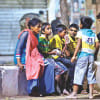
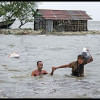

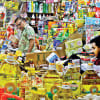
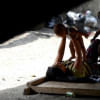

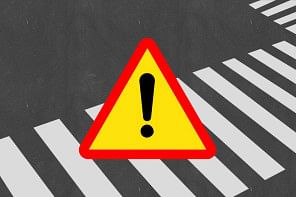
Comments